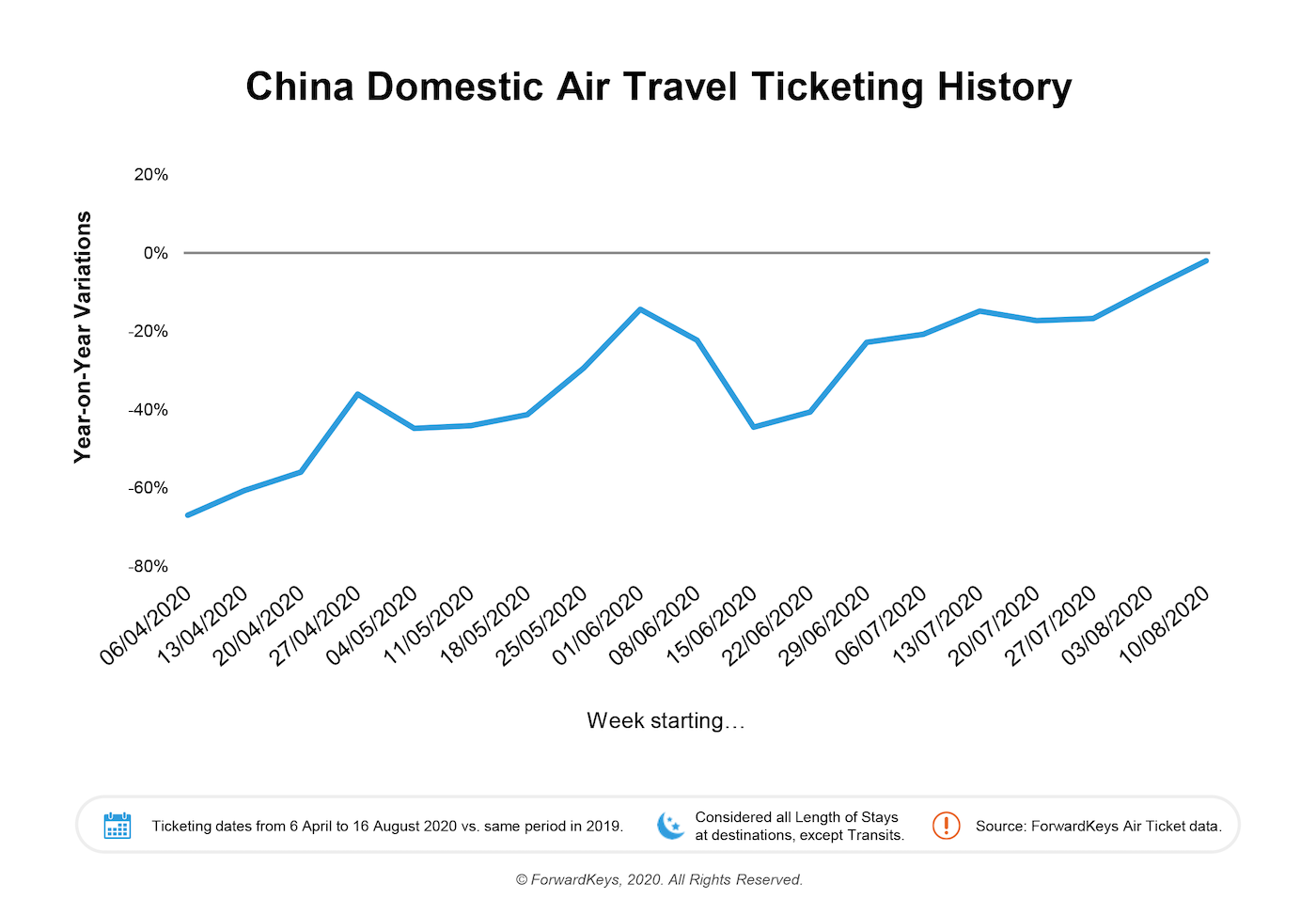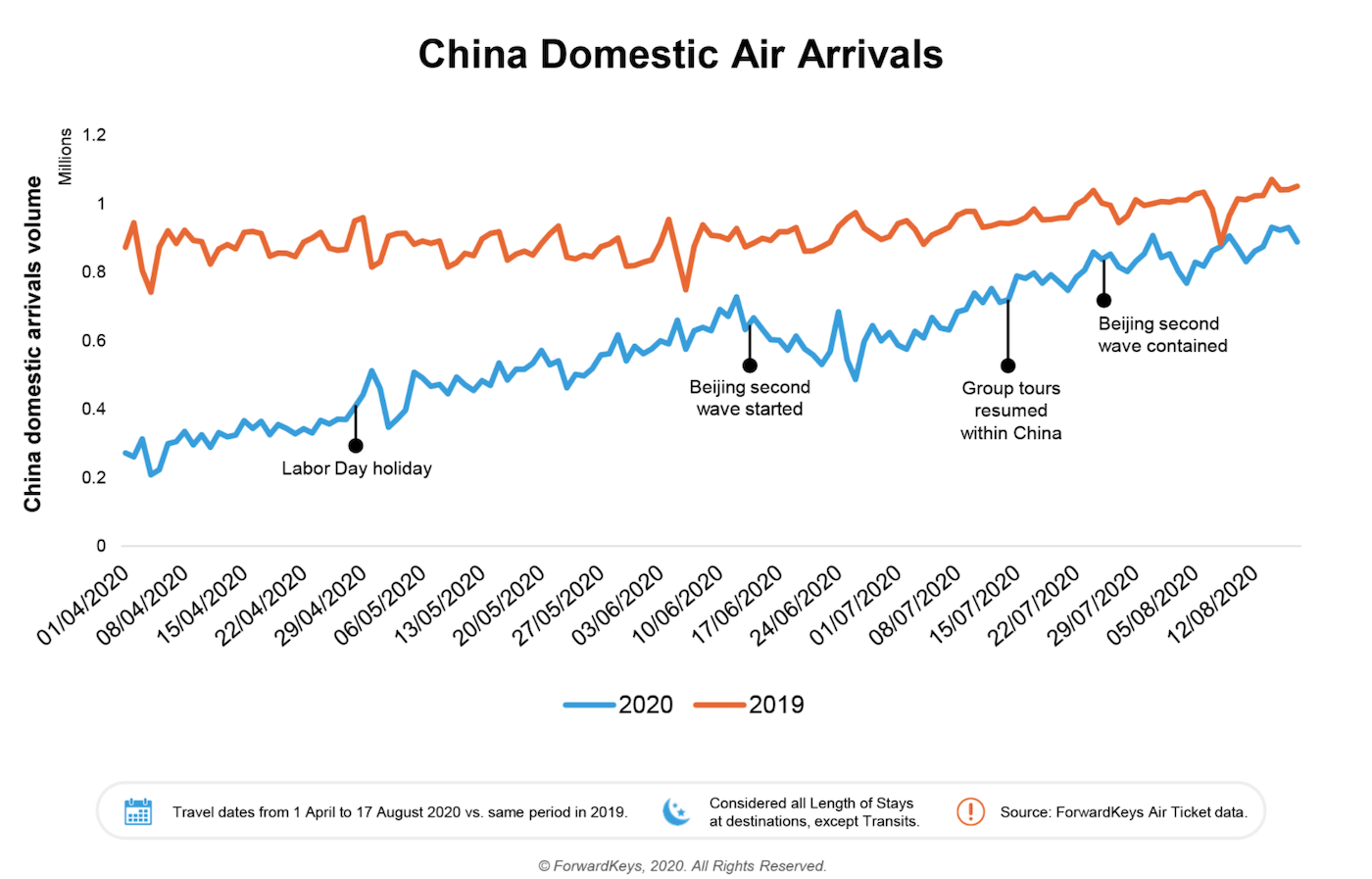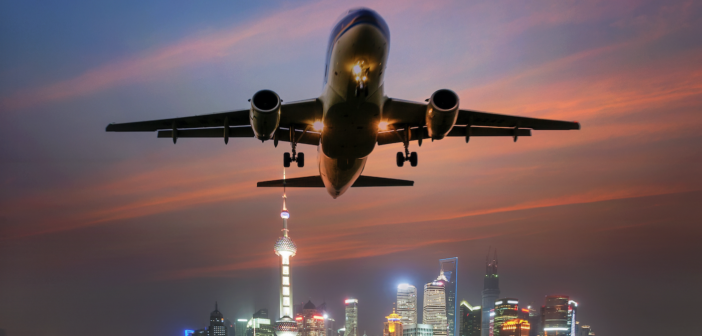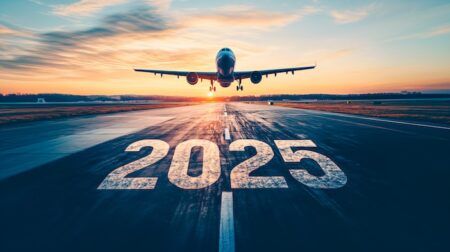Domestic air travel in China, which has been recovering progressively in the wake of the Covid-19 outbreak, will reach a full recovery by the start of September. In the second week of August, domestic arrivals at Chinese airports reached 86% of 2019 levels and bookings (issued air tickets) hit 98%, with most being for travel in mid to late August.
ForwardKeys’ forecast of a full recovery is based on four factors. First, the pandemic is now under control. Second, domestic aviation seat capacity is set to grow by 5.7% in the last week of August, when compared to the same period last year – and when airlines make seats available, they tend to fill them by flexing fares. Third, many school and university students are travelling ahead of the start of term in September. Finally, aggressive price promotions have greatly stimulated demand.
Since mid-June, nine Chinese airlines have launched a dozen different offers. For example, China Southern’s ‘Fly Happily’ promotion allows customers to fly to any destination across the country, before 6 January, for US$529. Until year end, HNA allows passengers on its airlines to fly to and from Hainan for US$386 and Xiamen Airlines is launching ‘Students Fly’, which allows first-year university students to take a flight between 25th August and 25th September for just US$40.

Looking back, the aviation market in China bottomed in the second week of February and it has climbed slowly since then. Along the way, the recovery highlights were the Labour Day holiday at the start of May, the resumption of group tours within China in mid-July, the containment of Beijing’s second wave of Covid-19 later that month, and the ruling on 20th August by the Beijing Centre for Disease Prevention and Control, that people in Beijing were no longer required to wear a face mask in public. The most notable setback was Beijing’s second Covid-19 outbreak, which caused the recovery to stall from the second week of June for a month.

Analysis of destinations within China reveals that Sanya, the holiday hotspot in the South China Sea, has been the stand-out performer, with 14.2% growth year-on-year in the second week of August, helped by Hainan province’s new duty-free policy introduced on 1st July. Chongqing, Chengdu, Shanghai and Shenzhen have also seen positive year-on-year growth, due to higher levels of economic activity. However, Chinese travel to Beijing is still 24.8% behind the same period in 2019, held back by the city’s second Covid-19 outbreak.
This is a highly significant moment because it is the first time, since the start of the Covid-19 outbreak, that a major segment of the aviation market anywhere in the world has returned to pre-pandemic levels. The crunch question is whether heavy discounting will still be needed to maintain the recovery, or whether the industry will return to profitability during the upcoming Golden Week holiday in October.





